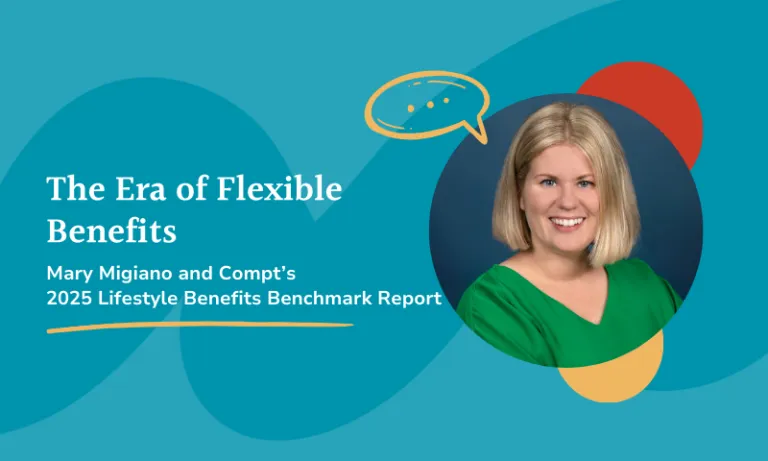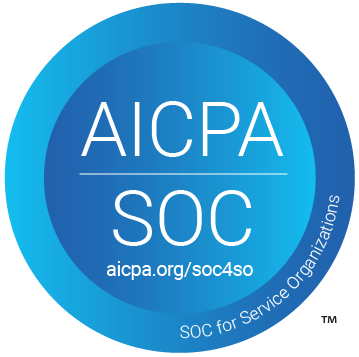A meal allowance is a predetermined amount of money given to employees to purchase food. It’s also known as a food allowance, meal stipend, or employee meal benefit,
These food allowances, are a relatively old concept. Typically, we would see these being used during business travel, or if a senior leader was taking out clients or prospects for fancy meals.
But fast forward to today, the idea of a meal stipend has transformed. They’re not just for the higher ups at companies, but rather can be an equitable benefit for all levels of staff to help with anything from groceries to healthier meal options, to team lunches.
As working models have changed, meal stipends have, too, leaving behind catered in-office lunches or snacks as a work perk in favor of one that can benefit their hybrid and remote workers.
In short, employers looking for more options are now in favor of more inclusive ways to support their employees’ food needs and give them the power of choice, wherever they might be.
Thinking about a meal stipend for your people? Well, you’re in the right place.
We developed this guide to give you everything you need to know about meal stipends.
What is a Meal Stipend?
First, a definition:
A meal stipend is a predetermined amount of money provided to employees for the purpose of purchasing food.
The stipend funds can be used for buying lunch for remote employees, or items like snacks, groceries, and beverages that will make their working experience more convenient, healthy, productive, and supported. Some even call them a grocery allowance because they’re so flexible for your employee’s food needs.

Ready to offer a meal allowance stipend?
Compt customers see 90%+ employee engagement rates!
Who Offers Meal Allowances Today
A meal stipend is one of the many ways you can support your employees financially, without having to go through a costly company-wide salary increase. Whether you know it or not, you likely have employees that are going through some level of food insecurity, and this can be a huge helping hand to them.
A startling statistic: 13.5% (roughly 18 million U.S. households) were food insecure in 2023, up from 10.2% in 2021, with the cost of groceries rising 25% since the pandemic. (Sources: USDA and CNBC)
As we detail in our Mid-Year 2024 Lifestyle Benefits Benchmark Report where we analyzed Compt customer stipend usage data, food was the #1 category in which employees submitted claims.

Examples of Meal Allowances
Below are a few examples of top companies supporting their people with food allowances:
1. MasterClass
MasterClass’s employee perks include $120/month as an interim snack stipend (due to COVID) that they distribute via the Compt platform.
2. Snapchat
Snapchat gives its people $16/day for food.
3. SAP
Depending on the office, SAP would provide in-house catered meals or a food stipend.
4. Lose It!
Lose It! gives their employees $100 to spend on lunch delivery.
One of our clients in software offers stipends to their office employees as well to entice more office usage with an ‘Office Thursday’ meal allowance.
What Do People Spend their Meal Allowances or Stipends On?
- Breakfast, lunch, or dinner
- Snacks for their home office
- Coffee, tea, and other beverages
- Groceries
- Smoothies and juices
- Protein bars and meal replacement shakes
- Takeout or delivery
- Healthy food kits such as Blue Apron, Hello Fresh, and Purple Carrot
- Healthy prepared food options such as Freshly
Want to learn more about all the possibilities with meal allowances and Compt?
Meal Allowances for Travel
Whether your employee is away for a few hours or staying for several days to attend a conference during a business trip, it’s likely they will incur meal expenses during their trip.
In such situations, providing a meal stipend to cover business-related meals such as breakfast, lunch, or dinner is a viable option. However, it’s important to establish a clear meal allowance policy for employees to refer to before embarking on their journeys.
The federal Meals & Incidental Expenses (M&IE) rate serves as the standard benchmark for reimbursing employees for their business-related meal expenses while traveling. For the year 2023, the rate stands at $59 per day for most small localities in the United States. If you are considering a meal allowance for employee work-related travel, check out our Expense Management product suite, as these are considered business expenses.
Note that per diems are not considered wages and therefore are non-taxable.
Benefits of Food stipends
Whether your team is in-office, remote, or hybrid, there are plenty of benefits to offering your people a meal allowance. Below we highlight the most common four.
1. Meal allowances aren’t just for the office anymore: Attract & retain hybrid and remote talent
Catered meals were a staple in many offices across the nation pre-COVID. However, how many companies have been able to continue this since COVID began? Not too many.
As this Protocol piece points out, people are mourning the loss of their free lunches and snacks. You can stand out against the crowd by adapting and offering a food stipend today so that your employees get support for their most basic life needs.
2. Offer equitable & inclusive benefits
Today more than ever, people’s diets are varied due to preferences, intolerances, and allergies. With a food stipend or grocery allowance you’re able to create an employee lifestyle benefit that supports everyone, regardless of whether they’re paleo, vegetarian, vegan, gluten-free, dairy-free, and more.
3. Meal allowances and stipends are cost-effective
If offering free lunches or meals to your people is a priority, this is one of the most cost-effective ways to do so.
Catered meals on-site are a thing of the past and it is also a time-consuming process to make sure the right amount of food is delivered, at the right time, while also ensuring people have the food they need (e.g. paleos, vegetarians, vegans), and the office space is cleaned up afterward.
Food allowances allow people to get their favorite foods while sticking to a budget, and without worrying about the time or costs of cleaning up.
If you want to see why they’re so cost-effective, see how much you could be saving by using Compt to manage your meal stipend.
4. Meal allowances are scalable
A food stipend is an easy and scalable way to set your people up with the food they want. Additionally, the right perk management software can also help ensure that taxes are accounted for, always.

Discover more benefits of an employee stipend program
Check out our free guide to learn why employee stipends and lifestyle spending accounts are becoming such a common (and coveted!) company perk.
How to Find the Budget for a Meal Stipend or Meal Allowances
At first glance, it might feel like you have to create a new budget for this, and while that might be the case, there are other options to be able to cover the cost of meals. Below we break down the various options to creating a meal allowance program, by either getting new budget approved or consolidating an existing budget.
Option 1: Create a new budget
If you’ve already decided this is an important endeavor for your company and its people, then you’re set!
If using a perk solution, be sure to count this cost into the budget. Or if you’re managing them manually, you need to find a way to quantify this cost as well since the cost of time and labor to manage these is often a more hidden cost that will fall on HR.
Option 2: Transition existing food or snack budgets
If offering on-site catering for your people is a thing of the past, and that budget is still available, transition this money into a meal allowance. Learn how Compt can help you manage a meal stipend.
Option 3: Transition existing perks
According to a recent SHRM report, about one-third of companies plan to extend the option for remote and hybrid work into the future.
To remain competitive for talent, companies need to evolve their fringe benefits and stipends to meet the needs of current and prospective employees. If you’re looking for a way to serve your people in unbelievably meaningful ways, transition the “old perk budget” into a meal allowance, or even a remote work stipend or general perk stipend.
Use our helpful calculator to determine the cost of your perk vendors, and how much you can save by switching to food stipends with Compt.
How to Set up a Meal Stipend:
Setting up a meal allowance isn’t a heavy lift for HR teams. Below we break them down into two steps.
1. First determine how much you want to offer your people and within what timeframe.
Look to the Perk Vendor Cost Calculator which can help you identify the budget.
Keep in mind, you don’t need to offer a lot of money to make a big difference.
2. Decide how you’ll manage the program.
There are three ways to manage a stipend program, and they include:
Managing the process manually.
If you choose this option, you’ll need to set up a process to track employee food purchases, collect receipts, manage balances, process approval and paid-out food perks, as well as rejections or ones which need further review.
Keep in mind that food allowances are a taxable benefit!
Because of this, you might want to use Google forms to track submissions, excel or Google sheets to track progress, and create a process to track the nontaxable vs taxable (for IRS compliance).
Select an expense software to manage it.
Expense software solutions like Expensify and Concur are largely meant for business expenses which these are not.
If you’re using expense software, it can be cumbersome. First, you’ll want to make sure every employee has an account with your company’s expense software option and that you’ve also set up a way to track the individual employee food budgets to prevent overspending. Lastly, don’t forget to loop in your finance team so you can understand how to take taxation guidelines into account.
Select a lifestyle benefits software to manage it.
Options for employee stipend solutions have grown tremendously over the past few years as more people turn to inclusive and flexible options for their people.
This kind of software can be especially helpful if it explains your food program details to your team members (and supports communication in remote teams), tracks their spending balances, and spending. Perk solutions should streamline your admin by having important information at your employees’ fingertips.
Other Types of Stipends
Of course, there are more stipends than just a meal allowance. Have you done an employee benefits survey to see what kind of perks your team may want?
Do a Google search for “top perks” and inside almost every list is a surprising number of perk stipends.
- Top 9 Employee Benefits Trends to Watch for in 2025 3 of the 9 are possible with stipends
- 5 companies with the best employee benefits [2024] – 7 of the 11 in the lifestyle benefits and professional development categories are stipends
- 30+ Best Employee Perks In 2024 [Remote-friendly] – 17 of the 30 can be accomplished through stipends
So what are the other types of stipends or allowances? Below is a list of a few more you can consider implementing.
- Health & wellness stipend
- Learning & development stipend
- Cell phone stipend
- Remote work stipend
- Internet stipend
- Travel stipends
- Charitable giving stipend
- Commuter
- Pet care stipends
- Student loan stipends
- Anniversary bonus
- General perk stipend: Companies combine one or more of the above stipends to create a general perk stipend that allows employees to pick from many spending categories.
Stipends or allowances make it possible for companies to offer more perks as lifestyle benefits with less money while ensuring that they’re personalized to meet the needs of their people.







